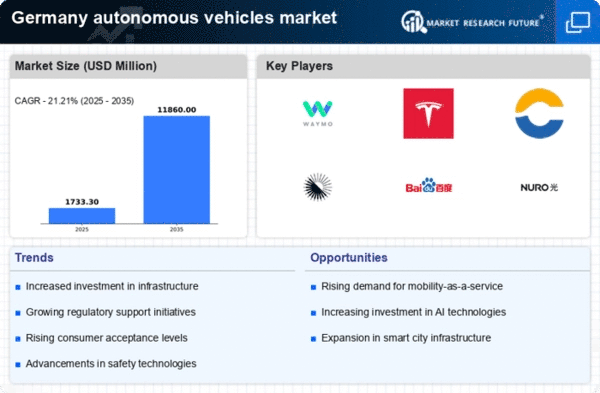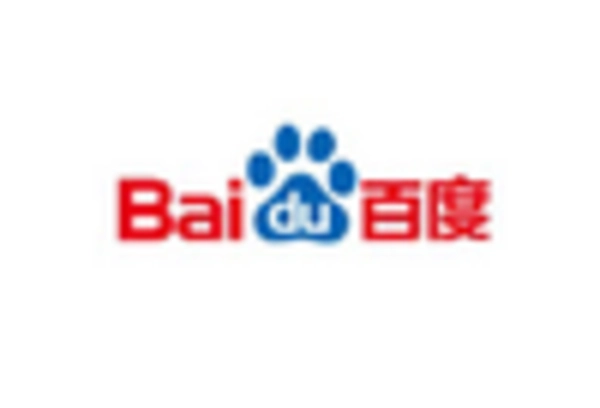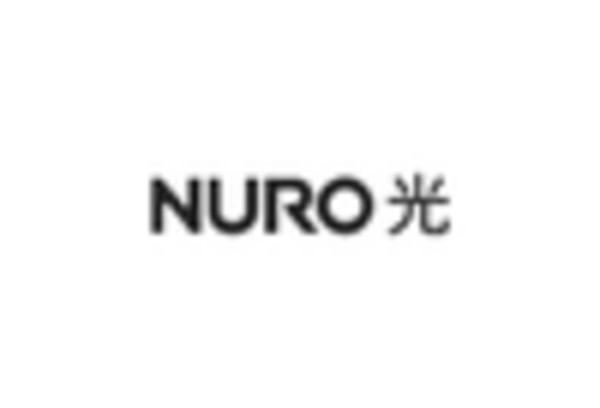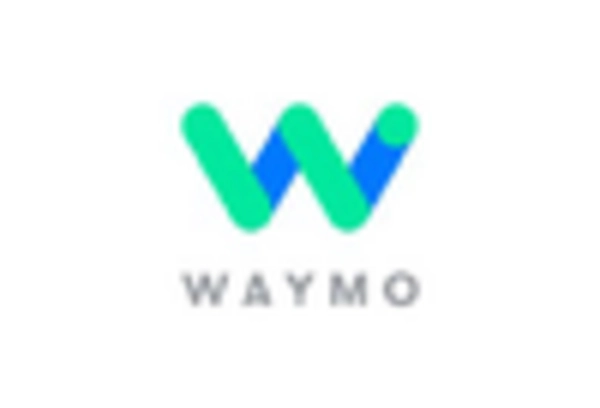Advancements in Sensor Technology
The autonomous vehicles market in Germany is experiencing a notable surge due to advancements in sensor technology. Enhanced sensors, including LIDAR, radar, and cameras, are crucial for the safe operation of autonomous vehicles. These technologies enable vehicles to perceive their environment accurately, which is essential for navigation and obstacle detection. As of 2025, the market for sensor technology in autonomous vehicles is projected to reach approximately €5 billion, reflecting a growth rate of around 15% annually. This growth is driven by the increasing demand for safety features and the need for reliable data processing capabilities. Consequently, the integration of sophisticated sensor systems is likely to bolster the overall performance and reliability of autonomous vehicles, thereby attracting more investments in the autonomous vehicles market.
Government Initiatives and Funding
Government initiatives play a pivotal role in shaping the autonomous vehicles market in Germany. The German government has committed substantial funding to support research and development in this sector, with investments exceeding €1 billion in recent years. These initiatives aim to foster innovation, enhance infrastructure, and create a conducive environment for testing autonomous technologies. Furthermore, the establishment of dedicated testing zones and regulatory frameworks is expected to accelerate the deployment of autonomous vehicles on public roads. As a result, the proactive stance of the government is likely to stimulate growth in the autonomous vehicles market, encouraging both domestic and international companies to invest in this burgeoning industry.
Urbanization and Traffic Congestion
Urbanization trends in Germany are contributing to the growth of the autonomous vehicles market. As cities become more densely populated, traffic congestion has emerged as a pressing issue, prompting the need for innovative transportation solutions. Autonomous vehicles offer the potential to alleviate congestion through optimized traffic flow and reduced reliance on personal vehicles. In urban areas, the adoption of shared autonomous vehicle services is expected to rise, with projections indicating a market growth of 25% by 2030. This shift towards shared mobility solutions is likely to enhance the efficiency of urban transportation systems, making autonomous vehicles an attractive option for city planners and residents alike.
Rising Demand for Sustainable Transportation
The push for sustainable transportation solutions is significantly influencing the autonomous vehicles market in Germany. With increasing awareness of environmental issues, consumers and policymakers are advocating for greener alternatives to traditional vehicles. Autonomous electric vehicles, in particular, are gaining traction as they promise reduced emissions and improved energy efficiency. The market for electric autonomous vehicles is projected to grow by approximately 20% annually, driven by government incentives and consumer preferences for eco-friendly options. This shift towards sustainability is likely to reshape the landscape of the autonomous vehicles market, as manufacturers focus on developing vehicles that align with environmental goals and regulations.
Technological Collaboration and Partnerships
Collaboration among technology companies, automotive manufacturers, and research institutions is a driving force in the autonomous vehicles market in Germany. Strategic partnerships are being formed to leverage expertise in artificial intelligence, machine learning, and automotive engineering. These collaborations aim to accelerate the development of autonomous technologies and enhance vehicle capabilities. As of 2025, it is estimated that over 50% of companies in the automotive sector are engaged in partnerships focused on autonomous vehicle innovation. This trend indicates a collective effort to address challenges such as safety, regulatory compliance, and consumer acceptance, ultimately fostering a more robust autonomous vehicles market.















